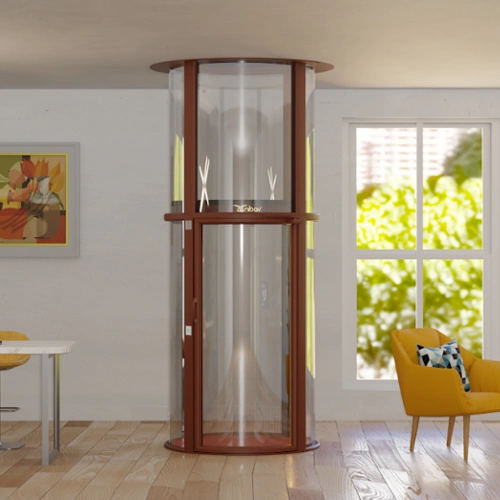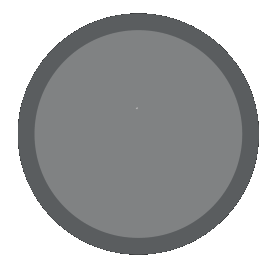
For many years, commercial elevators in Malaysia were only seen in office towers, shopping malls, and high-rise condominiums. They were heavy-duty machines built to move dozens of passengers every day, with large footprints that required deep pits, shafts, and machine rooms.
But Malaysian lifestyles are changing. Families in Kuala Lumpur, Penang, and Johor Bahru are increasingly embracing vertical living, with duplexes, townhouses, and multi-level villas becoming popular. This has created a growing demand for compact, stylish, and affordable residential lifts.
This is where Nibav home lifts come in.
Now the big question is: Should you install a commercial elevator in your home, or choose a modern residential lift like Nibav?
This blog will compare both options and help homeowners evaluate home elevator cost, safety, installation, and practicality in the Malaysian context.
Table of Contents
- Commercial Elevators in Malaysia: Built for Scale, Not Homes
- Nibav Home Lifts: Compact, Stylish & Family-Friendly
- Commercial Elevators vs Nibav Home Lifts: A Clear Comparison
- Understanding Home Elevator Cost in Malaysia
- Why Malaysian Families Choose Nibav Over Commercial Elevators
- FAQs: Commercial Elevators vs Nibav Home Lifts
- Which Option is Better for Malaysian Homes?
Commercial Elevators in Malaysia: Built for Scale, Not Homes
Commercial elevators in Malaysia are designed for public use and high traffic. They are robust, durable, and meet strict safety codes. However, they aren’t always suitable for residential settings.
Features of Commercial Elevators:
1.Require deep pits, shafts, and machine rooms
2.Built for heavy loads and large passenger volumes
3.Installation can take months, with extensive civil work required
4.Ongoing maintenance contracts are costly and frequent
5.High energy consumption, particularly with hydraulic models
While these features make sense for malls and office towers, they are often excessive for private homes.
Nibav Home Lifts: Compact, Stylish & Family-Friendly
As a globally trusted elevator company in Malaysia, Nibav Lifts specializes in air-driven (pneumatic) residential elevators. These lifts are built specifically for homes, combining safety, efficiency, and modern design with eco-friendly technology.
Key Features of Nibav Home Lifts:
1.Pitless, shaftless, and machine-room free
2.Compact design that fits into stair voids or small spaces
3.Quick installation in just 4–5 working days
4.TÜV NORD & ISO 9001:2015 certified for international safety standards
5.Automatic emergency descent during power failure
6.Eco-friendly – no power consumption on descent, minimal energy on ascent
7.Panoramic polycarbonate glass cabins with customizable finishes
8.Relocatable – can be dismantled and re-installed in a new home
For Malaysian households, these features make Nibav a practical and stylish alternative to bulky commercial elevators.
Commercial Elevators vs Nibav Home Lifts: A Clear Comparison
| Features | Commercial Elevators Malaysia | Nibav Home Lifts |
| Space Requirement | Needs a pit, shaft & machine room | Pitless, shaftless & self-supporting |
| Installation Time | Several months | 4–5 working days |
| Home Elevator Cost | Very high (civil + equipment + AMC) | Lower, with transparent pricing |
| Energy Usage | High – oil, cables, counterweights | Eco-friendly – zero power on descent |
| Safety Standards | Complies with building codes | TÜV NORD & ISO 9001:2015 certified |
| Maintenance | Frequent & costly contracts | Low – servicing once every 4 months |
| Aesthetics | Industrial & plain | Sleek glass cabins with modern finishes |
| Relocatable | Stationary | Fully relocatable |
For Malaysian families, Nibav home lifts offer unmatched practicality, affordability, and style compared to commercial elevators.
Understanding Home Elevator Cost in Malaysia
When comparing options, home elevator cost is one of the most important decision-making factors.
- Commercial elevators: Extremely costly once you include construction for pits, shafts, and long-term maintenance. Expenses often run into hundreds of thousands of Ringgit, making them impractical for private homes.
- Nibav home lifts: Affordable upfront pricing with no hidden civil costs. Lower installation expenses, minimal energy use, and reduced maintenance make them the mostaffordable home liftoption in Malaysia for long-term value.
Why Malaysian Families Choose Nibav Over Commercial Elevators
1.Compact footprint – Ideal for landed properties, duplexes, and villas.
2.Eco-friendly design – Saves on electricity bills and supports sustainable living.
3.Fast installation – No months of disruption; ready in less than a week.
4.Global quality, local service – Nibav is an elevator company in Malaysia with worldwide reach.
5.Smart investment – Increases property value and provides mobility for seniors, children, and all family members.
FAQs: Commercial Elevators vs Nibav Home Lifts
1.Are commercial elevators suitable for homes in Malaysia?
Not really. They require deep pits, shafts, and major construction, making them costly and impractical for residential use.
2.What is the average home elevator cost in Malaysia?
Commercial elevators are far more expensive. Nibav home lifts start at a lower price point with no hidden civil work charges.
3.How long does installation take?
Nibav lifts are ready in 4–5 days, whereas commercial elevators take months.
4.Are Nibav home lifts safe for children and seniors?
Yes. They feature child locks, overload sensors, and automatic emergency descent.
5.Can I relocate my Nibav lift if I move houses?
Yes. Nibav home lifts are fully relocatable, unlike stationary commercial elevators.
Which Option is Better for Malaysian Homes?
While commercial elevators in Malaysia are perfect for large-scale projects like malls and office towers, they are too large, expensive, and maintenance-heavy for residential homes.
For Malaysian families, Nibav home lifts are the smarter choice. They provide affordable home lift options, TÜV-certified safety, eco-friendly technology, quick installation, and customizable design—making them a true blend of function and luxury.
Because in Malaysia, true luxury is not just about the size of your home—it’s about moving between floors safely, affordably, and with style.
